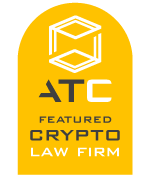
Are Cryptocurrencies Securities?
The recent explosion of crowd sales for Blockchain based businesses has resulted in the raising of tens of millions of dollars through the sale of cryptographic coins and tokens, known as cryptocurrencies. Earlier this year tech companies enjoyed free reign as this method of crowd funding flew under the regulatory radar; however, the latter half of 2017 has been an almost universal wake-up call as all the major crypto markets have sought to regulate such raises in one way or another. While some jurisdictions, such as Korea and Japan, have looked to recognize and regulate cryptocurrencies, others such as China have banned them outright. In the middle are Canada and the USA, which are cautiously attempting to regulate without scaring the innovators out of their jurisdictions. They have done this by attempting to analogize these raises with the existing, though hardly relevant, information and legal framework they have today. This causes problems because cryptocurrencies do not fit easily into existing categories due to their innovative nature. Recently, there has been a growing interest in whether Blockchain tokens may constitute a security. If cryptocurrencies are securities then there are important implications for anyone engaged in trading them, which could deter the practice of raising funds through the sale of cryptocurrencies entirely.
To date, the Ontario Securities Commission (“OSC“) has not explicitly categorized a Blockchain token as an ‘investment contract’ or any other type of security under Section 1 of the Ontario Securities Act. However, the definition of ‘security’ is not meant to be exhaustive, so things not specifically listed may ultimately be deemed to be a security. In a press release dated March 7, 2017, the OSC advised businesses that use distributed ledger technologies that “products or other assets that are tracked and traded as part of a distributed ledger may qualify as securities, even if they do not represent shares of a company or similar ownership interests.” On August 24, 2017, the Canadian Securities Administrators published CSA Staff Notice 46-307 – Cryptocurrency Offerings (the “Notice“) to provide guidance on the applicability of securities laws to Initial Coin Offerings (“ICO“), which are used to raise money for Blockchain ventures through crowd sales of cryptographic coins and tokens. The Notice ostensibly showed support for the innovative technology, but very clearly attempted to analogize ICOs to securities as best it could, and where it could not it attempted to encourage those looking to engage in an ICO to voluntarily submit to a new process, it created to address ICOs which are not securities.
The Notice states that an ICO is similar to an Initial Public Offering (“IPO“) where it can be analogized to shares of a company, and thus selling coins or tokens pursuant to an ICO may violate securities law. However, every ICO is unique and must be assessed by its own characteristics, and thus not all cryptocurrencies are automatically considered securities.
In determining whether tokens sold pursuant to an ICO is a security, businesses should apply the four-pronged test which was adopted by the Supreme Court of Canada in Pacific Coast Coin Exchange of Canada v. OSC, [1978] 2 SCR. In Pacific Coast, the Court held that an investment contract (and thus a security) exists when the following factors are met:
If an ICO is found to be an offering of securities, the business conducting the offering will be required to create a prospectus or rely on a prospectus exemption. Businesses completing ICOs for a business purpose will be required to obtain a dealer registration or an exemption from the dealer registration requirement. Compliance with Know-Your-Client rules and suitability obligations will also be required in such a case.
In addition, the CSA Notice indicates that cryptocurrency products may also be considered derivatives and therefore subject to additional requirements.
The CSA recently launched the CSA Regulatory Sandbox to encourage disclosure of ICOs and to provide a temporary exemption to securities requirements where they are deemed appropriate. Although it may seem like a viable option, it presumes that the ICO is subject to regulation, which in many cases it may not be. By availing yourself of the sandbox exemption you are effectively admitting that you are a security.
Grinhaus Law Firm can help determine whether your ICO will be subject to securities laws and can advise on the various steps and documents required for a successful ICO.
Please Contact Us to learn more about our ICO and Cryptocurrency advisory services.
PLEASE NOTE: THIS IS NOT INTENDED TO BE LEGAL ADVICE AND SHOULD NOT BE RELIED ON AS SUCH. IT IS IMPORTANT THAT YOU CONSULT WITH A LICENSED PROFESSIONAL.



